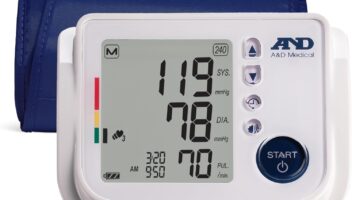Understanding PTSD and Acute Stress Disorder
When life throws unexpected challenges our way, our emotional and psychological health can take a hit. Two common terms that often emerge in conversations about trauma are Post-Traumatic Stress Disorder (PTSD) and Acute Stress Disorder (ASD). While related, they have distinct differences that can shape how individuals experience and recover from traumatic events. Let’s dive into what sets these two apart and how online therapy can be a light in the darkness.
Defining the Experience
Both PTSD and Acute Stress Disorder are responses to trauma, but the timeline and intensity of symptoms differ significantly.
PTSD typically manifests after witnessing or experiencing a traumatic event and can persist for months, or even years. On the other hand, ASD occurs in the immediate aftermath of a trauma—usually within three days to four weeks following the experience.
Picture this: A friend of mine shared how she was in a serious car accident. Initially, she felt anxious and jittery for weeks afterward. This was her acute stress reaction. But as months passed, she found herself haunted by flashbacks and vivid nightmares, leading to her eventual diagnosis of PTSD. This timeline illustrates how quickly someone can traverse from acute stress to more chronic conditions.
Symptoms That Distinguish
Understanding the symptoms can help clarify which condition might resonate more closely with someone’s experience.
Acute Stress Disorder symptoms include:
- Intrusive memories or flashbacks
- Severe anxiety
- Difficulty sleeping
- Numbness or detachment from surroundings
Post-Traumatic Stress Disorder symptoms include:
- Re-experiencing the trauma through flashbacks or nightmares
- Avoidance of cues associated with the trauma
- Negative changes in mood or cognition
- Heightened arousal (e.g., irritability, hypervigilance)
To put it simply, ASD functions as an immediate, albeit temporary, reaction to stress, while PTSD may require more extended care and intervention.
Moving Toward Healing
Regardless of whether someone is dealing with ASD or PTSD, the path toward healing is possible. Society is becoming increasingly aware of mental health and the importance of seeking help. The anxiety of dealing with these conditions can feel isolating, but the good news is that you don’t have to navigate it alone.
Many people have found solace in online therapy. Picture this: Imagine being able to talk to a qualified professional from the comfort of your home. No need to rush across town; you can engage in meaningful conversations in your pajamas if you wish!
Benefits of online therapy include:
- Accessibility: Easily connect with therapists who specialize in trauma.
- Flexibility: Schedule sessions that fit your life.
- Anonymity: Some may feel more comfortable discussing sensitive subjects in a more private setting.
If you’re curious about how online therapy might help you or a loved one overcome PTSD challenges, I encourage you to explore your options. Take the first step toward recovery with online therapy today here.
Personal Growth and Support Systems
Support is crucial for anyone dealing with trauma. Friends, family, and mental health professionals can create a nurturing environment that fosters resilience. I recall a period when I was uncertain of how to reach out after experiencing some losses in my life; it was through a trusted friend’s encouragement that I began looking into therapy options.
Here are some ways to build a supportive ecosystem:
- Communicate openly about your feelings.
- Seek understanding and compassion.
- Join support groups to connect with those who have similar experiences.
The Road Ahead
Healing isn’t linear. Some days will feel stronger than others, and that’s perfectly okay. Understanding your feelings, whether they are connected to Acute Stress Disorder or PTSD, is an essential step in the recovery journey.
Remember, there is no one-size-fits-all approach to healing, and everyone’s timeline is vastly different. It’s essential to honor your journey, understand your needs, and explore resources, such as online therapy, that can offer vital support.
If you find yourself grappling with the symptoms of PTSD or ASD, please consider seeking help. There’s strength in taking that step, and your story is far from over.
The impact of trauma can feel overwhelming, but understanding the differences between PTSD and Acute Stress Disorder can be empowering. When equipped with knowledge and support, not only can we heal, but we can also rise. Whether you’re in the early stages of management or seeking to heal past wounds, remember—you are not alone, and brighter days are ahead. 🌈
Disclosure:
Hospitals.net is a participant in the Amazon Services LLC Associates Program, an affiliate advertising program designed to provide a means for sites to earn advertising fees by advertising and linking to Amazon.com, .ca, .co.uk, etc.
AI Disclaimer:
Hospitals.net uses artificial intelligence (AI) tools to assist in gathering and summarizing product information, including reviews and other relevant data for Amazon products and services. While we strive to ensure the accuracy of the information provided, AI-generated content may not always reflect the most up-to-date or accurate details. The information on our site should not be considered professional advice, and users are encouraged to verify any product details directly with Amazon or other official sources before making a purchase.
We do not guarantee the completeness or accuracy of the AI-generated content and are not liable for any discrepancies or errors. Any reliance on the information provided is at the user’s own risk. By using this site, you acknowledge that product availability, pricing, and other details may change over time, and Hospitals.net is not responsible for these changes.
Health Disclaimer:
The health products and information provided on Hospitals.net are for informational purposes only and are not intended to substitute professional medical advice, diagnosis, or treatment. Always consult a qualified healthcare provider or medical professional before using any health products or following any advice you find on this site. The content on Hospitals.net, including product recommendations and reviews, is not a substitute for individualized care from a healthcare provider.
We make no warranties or representations regarding the effectiveness, quality, or safety of the products listed on our site. Any use of these products is solely at your own risk. Hospitals.net is not liable for any harm, injury, or adverse effects that may result from the use or misuse of the health products or information provided.
Please read all product labels, warnings, and directions provided by the manufacturer before using any product. If you have any questions about a product or its suitability for your condition, we recommend contacting the manufacturer directly or consulting a healthcare professional.
If you have any concerns regarding the accuracy of the information on this site, please contact us for further clarification.



